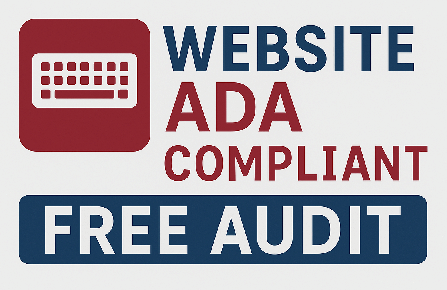See If Your Website Meets ADA Standards – Free Audit
🧩 Top ADA-Compliant WordPress Themes
These themes are designed with accessibility in mind, offering features like keyboard navigation, semantic HTML, and screen reader support.
✅ Popular Accessible Themes
- Zakra – Multipurpose theme with accessibility-ready templates and page builder support.
- Icelander – Business-focused theme with strong accessibility features.
- Period – Clean blog-style layout with high contrast and semantic markup.
- Neve – Lightweight, fast, WCAG-compliant with skip links and keyboard navigation.
- Founder – Minimalist design with accessibility-first structure.
- SKT Themes – Includes SKT Technician, SKT Ortho, SKT Eye Care, and more for ADA-focused businesses.
- Guten Pro – Built for Gutenberg editor, accessibility-ready and responsive.
- Linguini – Restaurant theme with clean layout and easy navigation.

🛠️ Accessibility Features to Look For
- Keyboard navigability
- Screen reader compatibility
- Color contrast and font legibility
- Skip to content links
- Semantic HTML structure
🔗 Sources
- accessiBe: https://accessibe.com/blog/knowledgebase/ada-compliant-wordpress-themes
- Colorlib: https://colorlib.com/wp/accessible-wordpress-themes/
- Accessibly: https://accessiblyapp.com/blog/wordpress-accessible-themes/y
📝 Summary
Choosing an ADA-compliant WordPress theme is a crucial step toward building an inclusive and user-friendly website. Whether you’re running a blog, business, nonprofit, or restaurant, accessible themes like Neve, Zakra, and Icelander ensure that all visitors—including those with disabilities—can navigate and interact with your content effectively. By prioritizing accessibility features such as keyboard navigation, screen reader support, and high-contrast design, you not only meet legal standards but also create a better experience for everyone.
⚠️ Disclaimer
While the WordPress themes listed above are designed with accessibility features in mind, using them does not guarantee full ADA compliance. True accessibility depends on how your website is built, maintained, and updated—including content structure, media usage, third-party plugins, and ongoing testing. For full compliance, it’s recommended to consult with accessibility experts and perform regular audits using tools like ADA Free Audit.
